Bald Eagles of Broward County, Florida
› ARCHIVED Pembroke Pines OBSERVATIONS & PHOTOS FROM PRIOR NESTING SEASONS
›
ARCHIVED 2014-2015 Observations of Pembroke Pines Bald Eagle Nest
MAR 5, 12:30 PM: Pride works while new female watches
MAR 5, 12:30 PM: Pride works while new female watches
|
Administrator
|
We took a visitor from New York to the eagle nest, arriving at about 12:30 PM. Gayle did not have much time so our hopes were not very high that she would see any eagles. To our surprise, Pride was on the nest and the new female was roosting just over the nest to the right (west).
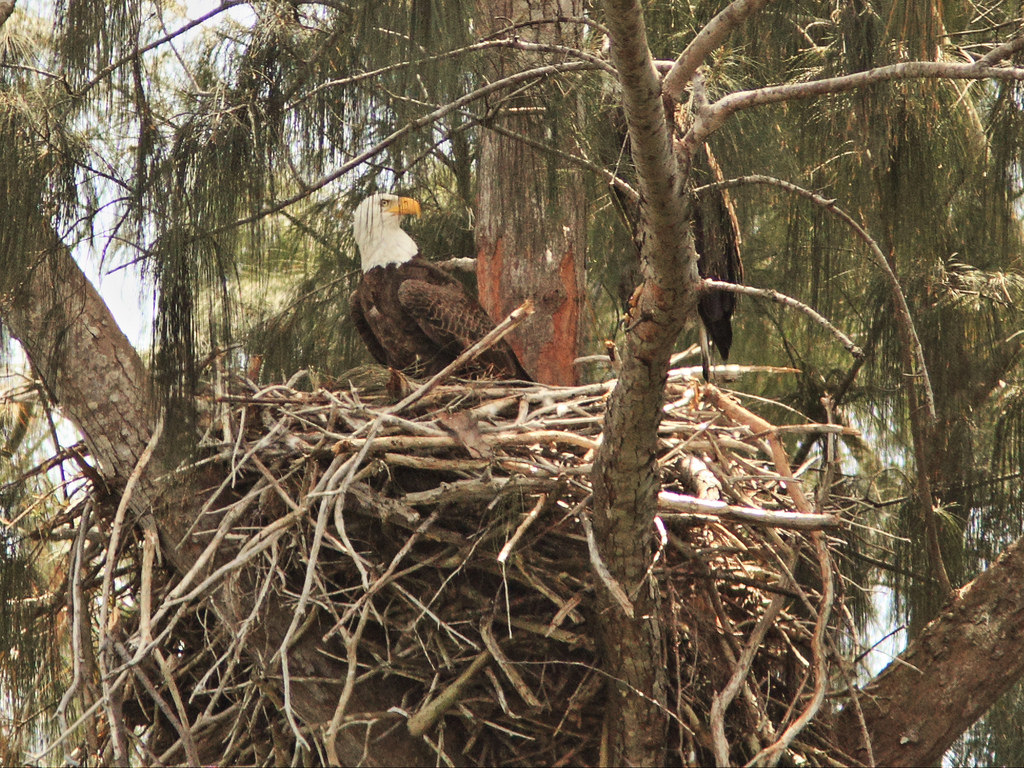 She stayed there the whole time as, after a few minutes, Pride flew off and soon returned with a stick. 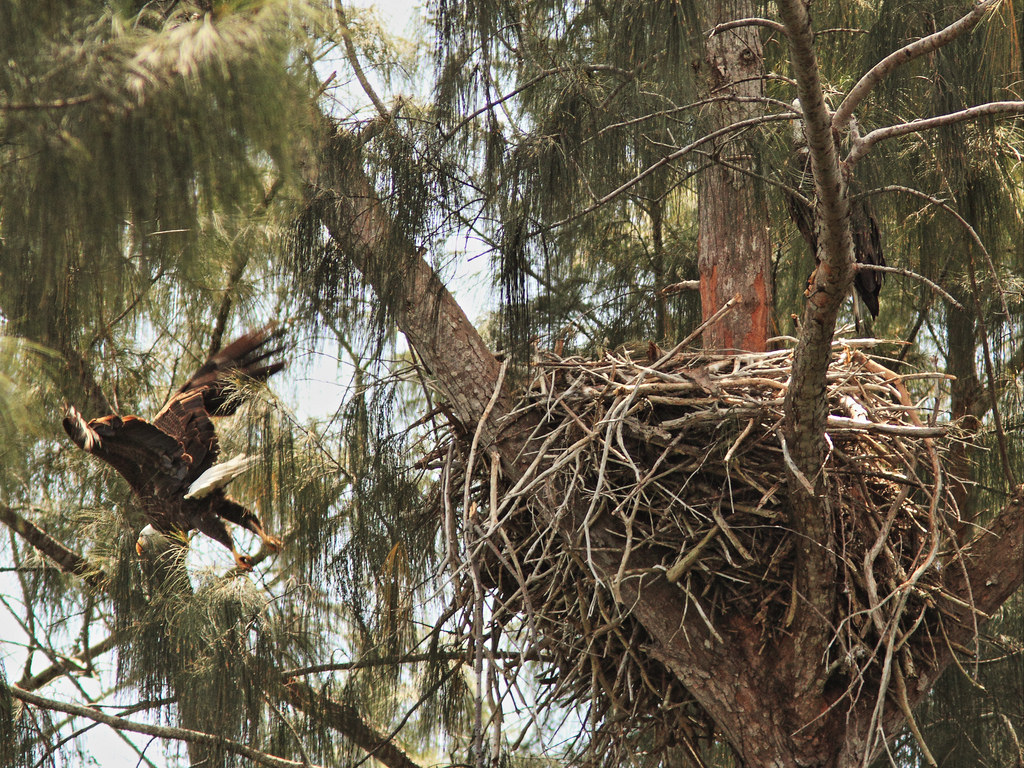 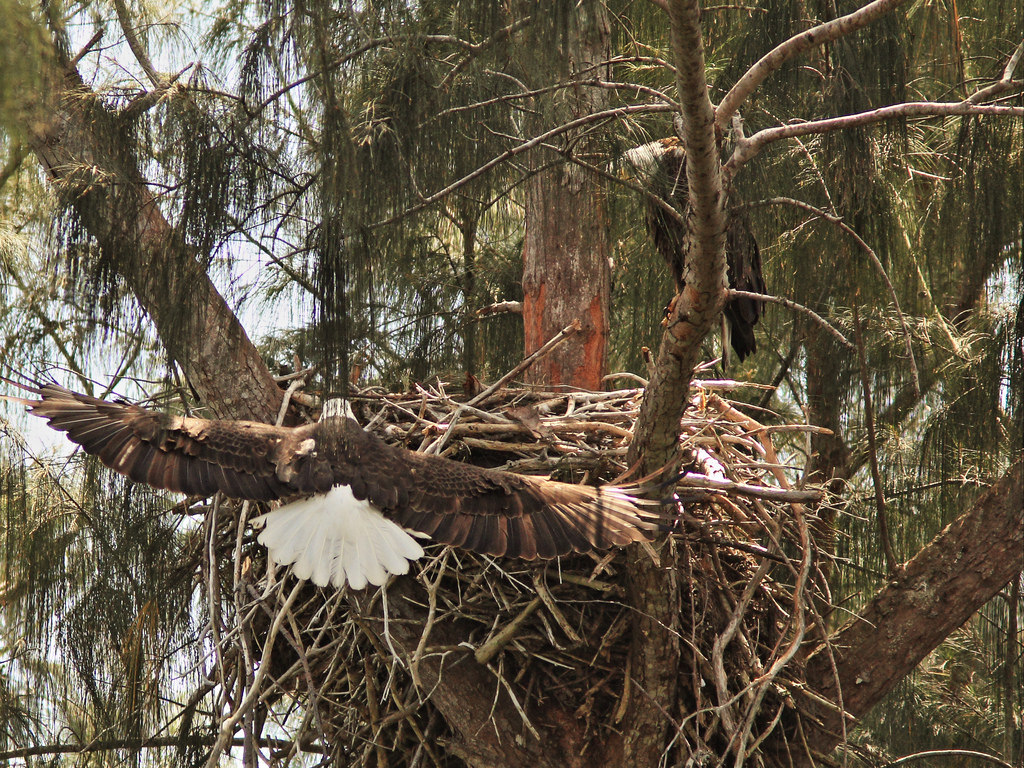 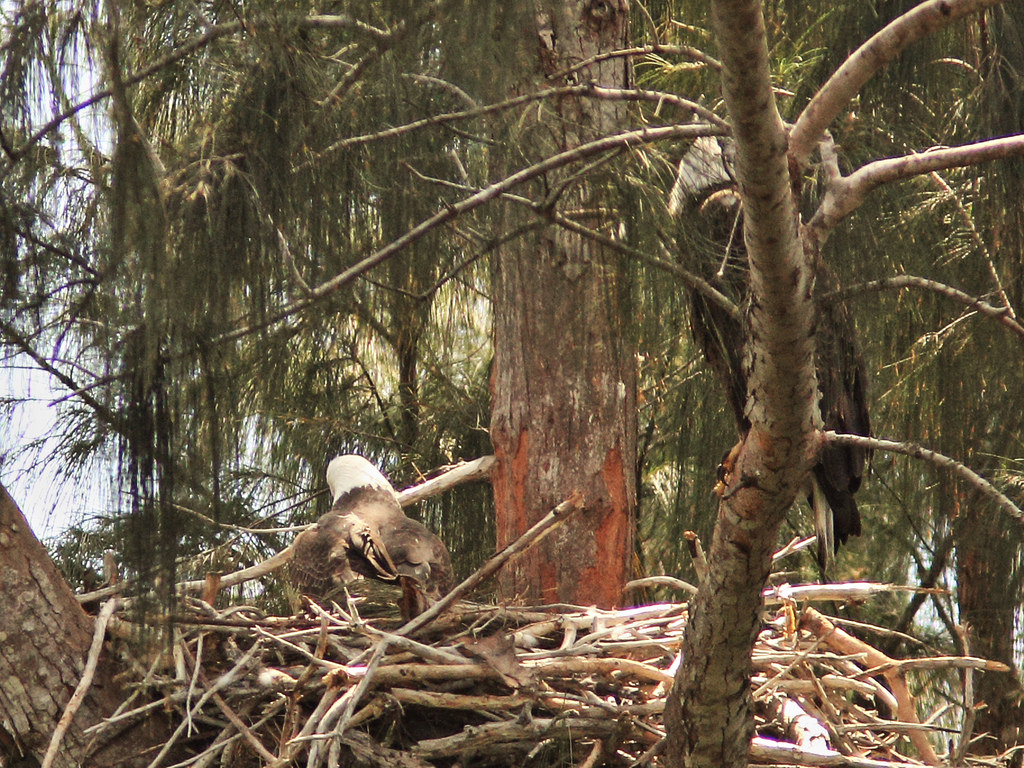 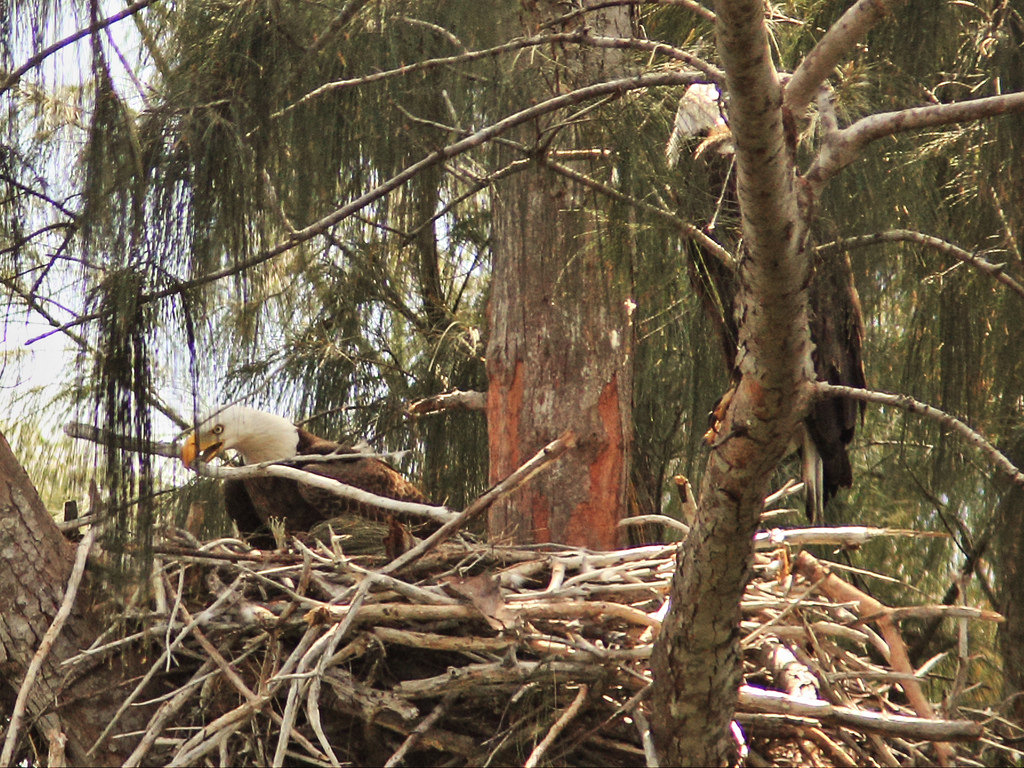 He rearranged the stick and other branches on the nest, and finally flew off to the SE. We only stayed for a half hour. 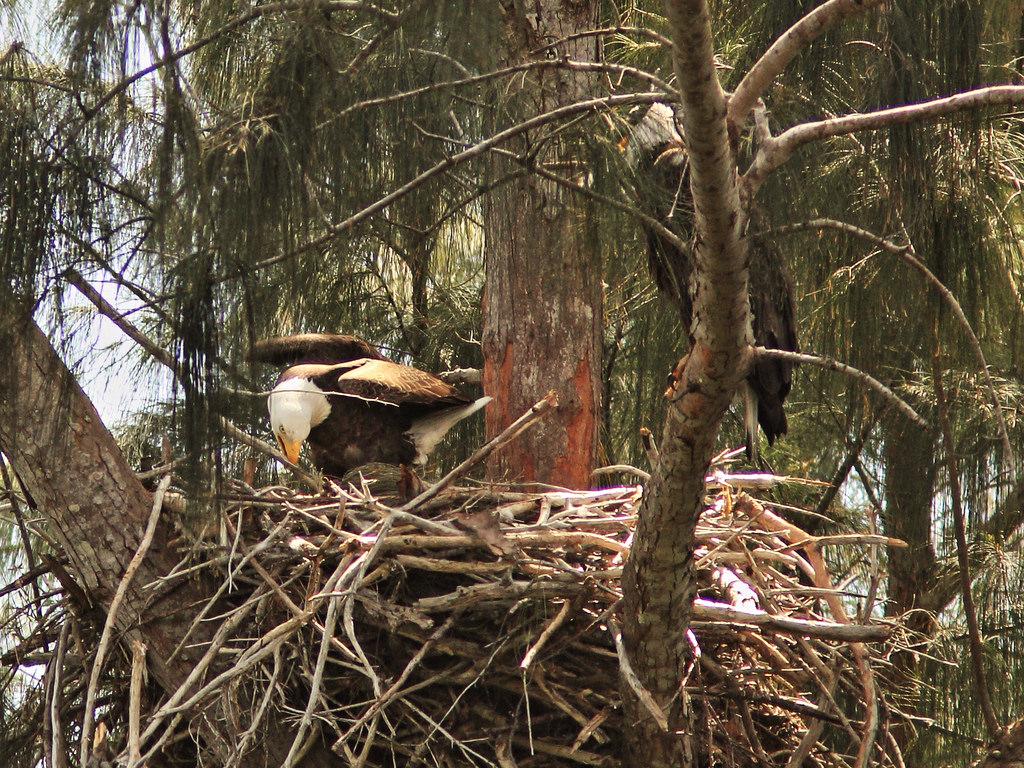 He looked up at the female as if to ask whether she liked the renovation. 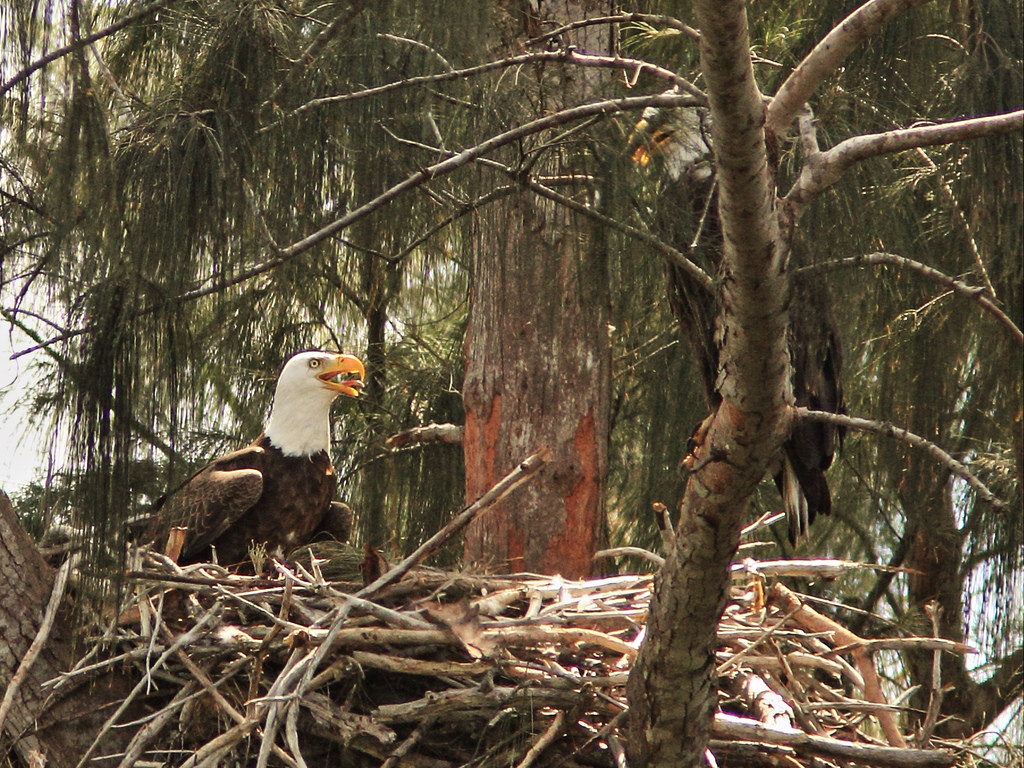 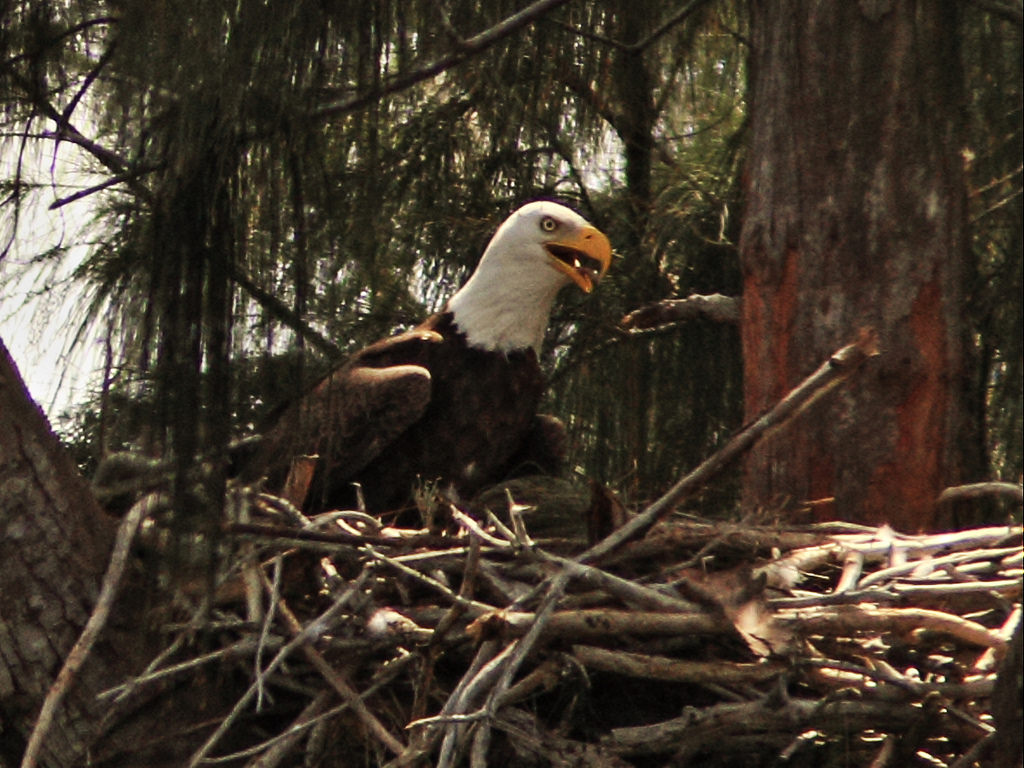 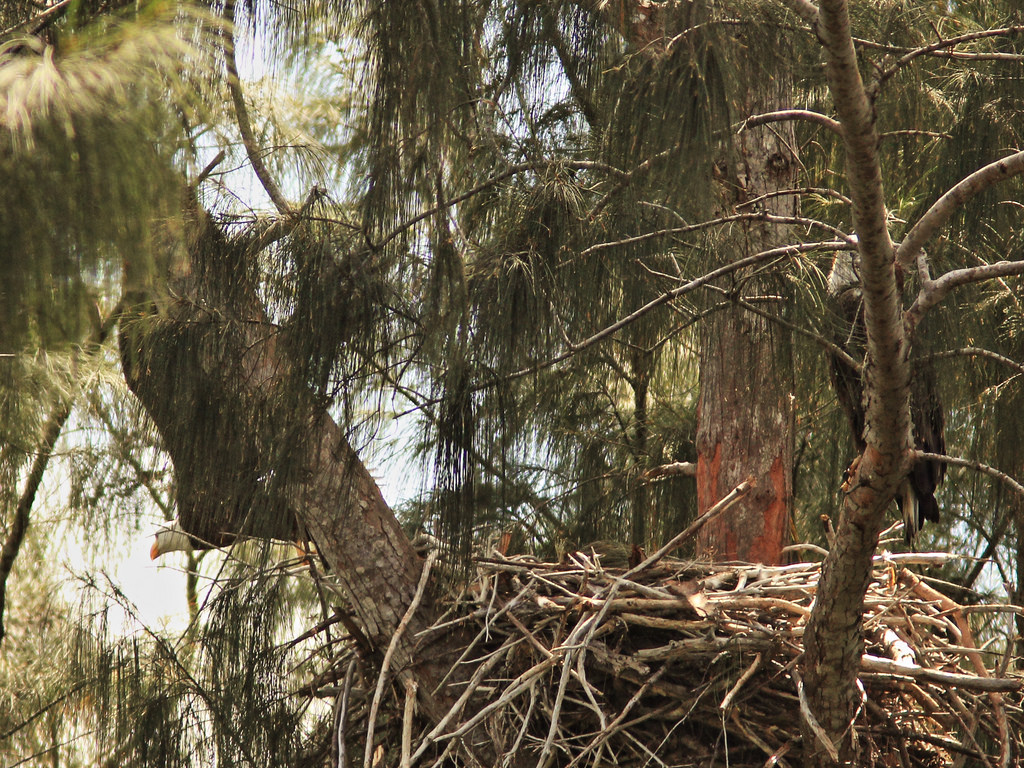
Ken Schneider
Web site: http://rosyfinch.com Blog: http://rosy-finch.blogspot.com Photos: <http://flickr.com/photos/rosyfinch> |
|
Great pics Ken. They were both on the nest at 3:50 this afternoon. Watched them for about 9-10 mins. Is it normal for Pride to keep his bill opened the whole 9-10 mins? I didn't hear any calling but I was in the median and traffic noise was an issue. They just moved around a little but no rearranging of anything that I could see.
|
Re: MAR 5, 12:30 PM: Pride works while new female watches
|
Administrator
|
Johnnye, the eagles commonly "pant" in order to dispel body heat. They do not sweat, so this and also by opening their wings to expose more surface area, and taking advantage of the position of the sun are common ways they have to regulate their body temperature. Fluffing their feathers, especially if there is a breeze, may also help. They may become less active so as to generate less body heat.
Of course, soaring, bathing and seeking shade are other behavioral means of avoiding overheating. Bare parts of birds such as beak, legs and the gular area (between the bill and throat) are rich in blood vessels that also help dispel body heat as air is moved back and forth as they pant.. Cormorants commonly exhibit "gular flutter" and I think that I have seen the eagles vibrate their throats as well as open their mouths to force air back and forth as they breathe quickly. Vultures are known to urinate on their legs to cool by evaporation-- Black Vultures, especially, often have white legs because of this trait.
Ken Schneider
Web site: http://rosyfinch.com Blog: http://rosy-finch.blogspot.com Photos: <http://flickr.com/photos/rosyfinch> |
|
Ken (or anyone reading this), based on all your observations about how the pair is behaving, do you think there are eggs in the nest? Or, that there will be? In years gone by, by now, there would have already been hatched eaglets.
I was just curious as to what your opinion is. I hope there are chicks this year. Thanks. Julie |
Re: MAR 5, 12:30 PM: Pride works while new female watches
|
Administrator
|
No, I do not believe that the eagles will breed successfully this season. Since at least two successful copulation episodes were observed (and many more not observed, I'm sure) the female may have been fertilized and may have laid eggs several weeks back. However she never has shown a strong "broodiness" that characterized Joy, who usually spent several days deep in the nest before depositing eggs. She may have dropped the eggs anywhere, but possibly in the nest. We had seen Pride spending quite a bit of time deep down in the nest.
Since they are biologic creatures they are not entirely predictable, but even in the very unlikely event that they did try to raise a family this late in the season, it would not fit the pattern they have evolved over the centuries. Generally eaglets will be hungriest just at time of maximum prey availability, which is just about now. Fish have not yet retreated to deeper and cooler water so the young eagles can more easily learn to hunt. Herons, Ibises and even rabbits and squirrels will be producing inexperienced youngsters. Heat stress will not be as severe as it would be for an eaglet hatching out in April or May. Their instinct is to fly north to seek cooler water by the end of summer-- this is especially true of the younger eagles. They simply would not be ready. I think the good news is that they appear to be well-bonded. They seem to spend the nights together, as they are often roosting on the Melaleucas at daybreak. Late afternoon sightings are also common. The proof will be if/when they return together next fall to get down to serious family matters!
Ken Schneider
Web site: http://rosyfinch.com Blog: http://rosy-finch.blogspot.com Photos: <http://flickr.com/photos/rosyfinch> |
«
Return to ARCHIVED 2014-2015 Observations of Pembroke Pines Bald Eagle Nest
|
1 view|%1 views
| Free forum by Nabble | Edit this page |


